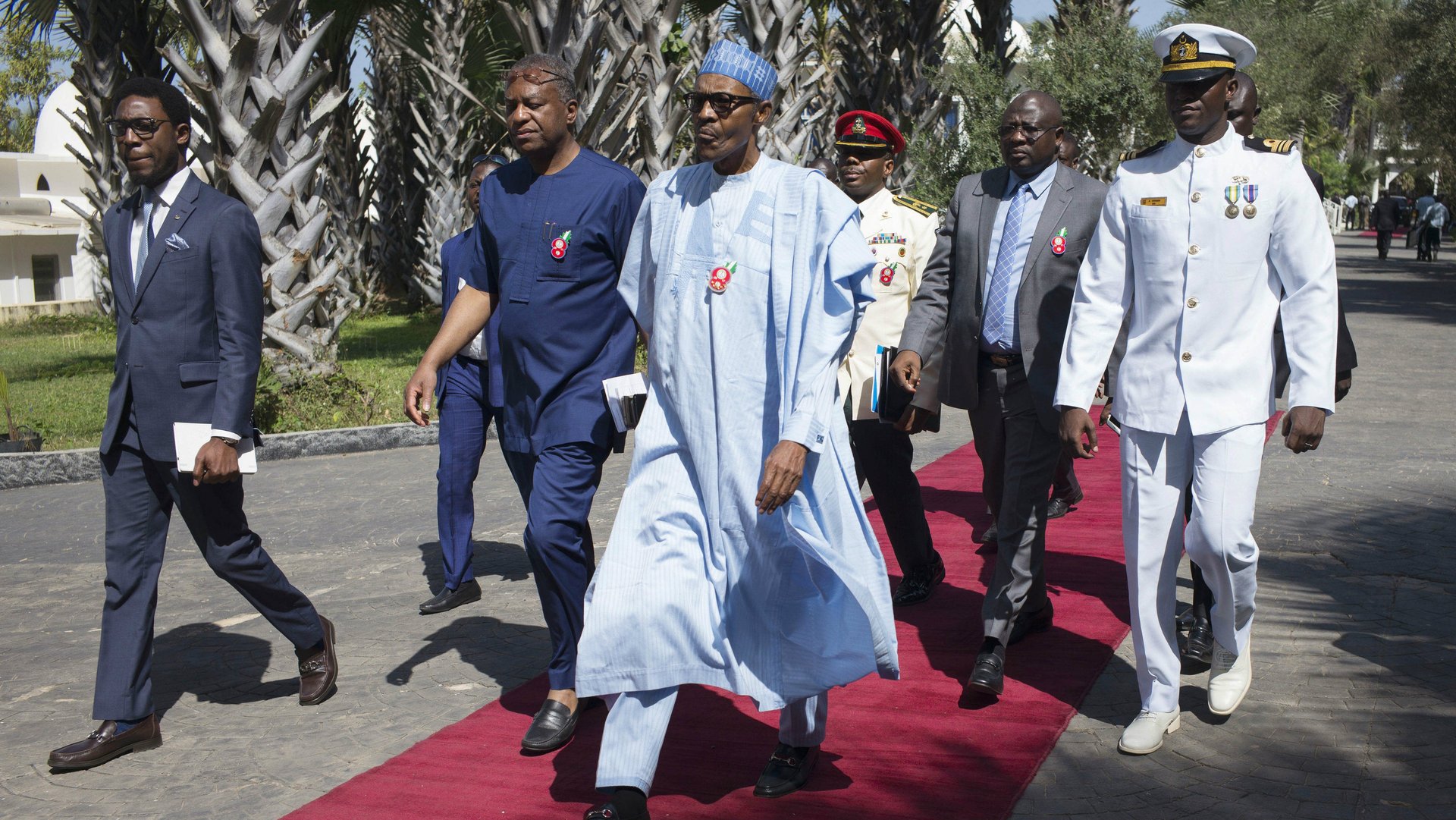West African leaders are trying to get Gambia’s president to step down
Days after rejecting the results of the Dec. 1 elections he’d initially accepted, Yahya Jammeh, president of The Gambia, is coming under increased pressure from leaders across the continent to step down.


Days after rejecting the results of the Dec. 1 elections he’d initially accepted, Yahya Jammeh, president of The Gambia, is coming under increased pressure from leaders across the continent to step down.
To manage the situation, West African leaders and ECOWAS, the regional bloc, are trying to convince Jammeh to leave office using diplomacy and a subtle threat of force. Presidents Muhammadu Buhari, Ernest Bai Koroma, Ellen Sirleaf Johnson and John Mahama of Nigeria, Sierra Leone, Liberia and Ghana respectively led an ECOWAS delegation to visit Jammeh today (Dec. 13). Nigeria’s president Buhari was blunt about the agenda of the meeting.
After the meeting Nigeria’s Buhari said Jammeh had been receptive of the ECOWAS leaders. Jammeh’s hospitality has not always been a given. Only days ago, he blocked president Johnson Sirleaf’s plane from landing in the country. His decision not to step down, which has drawn criticism around and beyond the continent, has raised tension and fears of a possible breakout of violence in the tiny West African country.
Despite the crisis talks with Jammeh, Marcel de Souza, ECOWAS commission president, says the deployment of troops could be a possible recourse if diplomacy failed. ”We have done it in the past,” de Souza told French media. “We currently have troops in Guinea-Bissau with the Ecomib mission. We have had troops in Mali. And therefore it is a possible solution.”
The option of military force may well favor Jammeh’s plans. He’s signaled an intention to challenge the election’s results, and is believed to have ordered Gambia’s electoral commission to be taken over by soldiers. Alieu Njie, the electoral commission’s chairman says staff have been denied entry at the commission. “I went to my office and a military man came and said I was not allowed to touch anything, so I took my briefcase, got into my car and went home,” he told the Guardian.
Despite Jammeh’s claims that the elections had “unacceptable” irregularities, Njie has stood by the results. With pressure and international attention increasing, Njie says Jammeh may be running out of options. “Let’s just hope and pray that now these heads of state are here president Jammeh will decide to step down. The only legal way is for him to step down.”